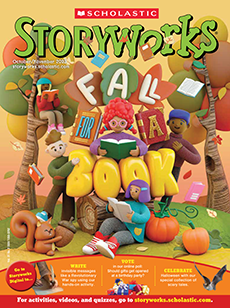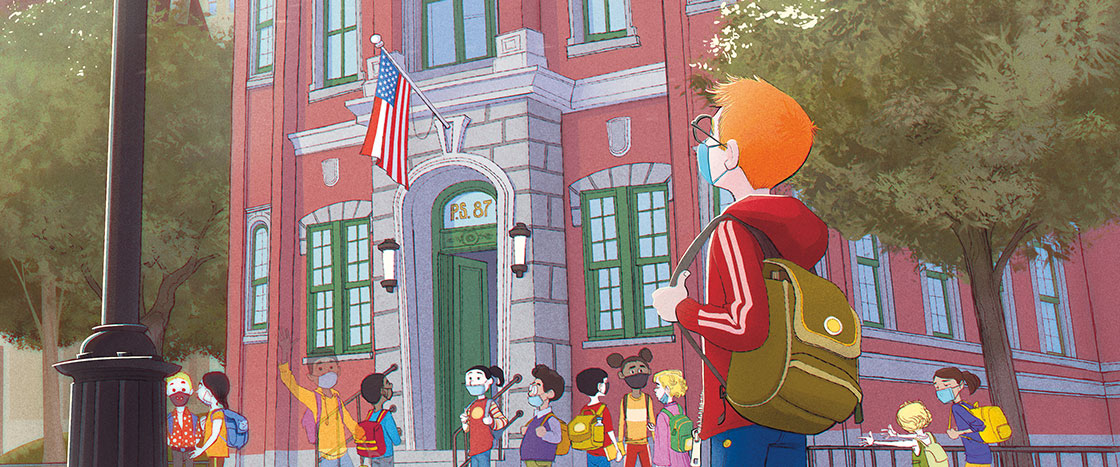It’s the first day of fifth grade, and I’m walking to school. The sidewalk is jam-packed. Cars honk, buses zoom, bikes zip by. I pass my favorite doughnut shop—still closed. Across the street is the taco place where we had my ninth-birthday dinner. It’s closed too.
But today, I barely hear the city noises. I don’t stare at the empty stores and used-to-be-restaurants. I’m thinking about my best friend, Devon.
What an annoying kid!
Like the way he eats a peanut butter and jelly sandwich. He stuffs it into his mouth, gets globs of peanut butter stuck in his braces . . . trust me, it’s a disaster.
And he’s always losing stuff—his soccer jersey, his bus pass, his earbuds. Good thing Devon’s head is screwed onto his neck. Otherwise he’d be running around shouting at me, “Elijah! Have you seen my head?”
I hear something, and I realize the noise is coming from my own mouth. I’m laughing about Devon. Out loud! What’s wrong with me? I whip my head around to see if anyone is staring. But of course they’re not. I keep forgetting I’m here, back home in my honking, beeping, zooming neighborhood. It’s way too noisy for anyone to hear a kid laughing on the sidewalk.
Not like in Grandpa’s quiet little town in Wisconsin, where Mom and I spent the last 16 months. We moved there in May of 2020, after Covid hit here. Hit hard.
School went all remote. Mom did her bank job from our kitchen table. I was afraid to step outside, like the air was filled with invisible monsters. Finally Grandpa came, drove 15 hours from Wisconsin to come get us. Mom and I figured we’d stay with Grandpa for a month or two, just until things here got back to normal. Six months went by. A year.
We finally came home last week, in time for me to start fifth grade in person.
But are things really normal here?
I peer behind me, half-believing that Devon is with me, that he just stopped to tie his sneaker.
But no. Devon’s not there. He moved to Texas. Like my favorite doughnut shop and the taco place—and so much else that Covid took away—my best friend Devon is gone.


